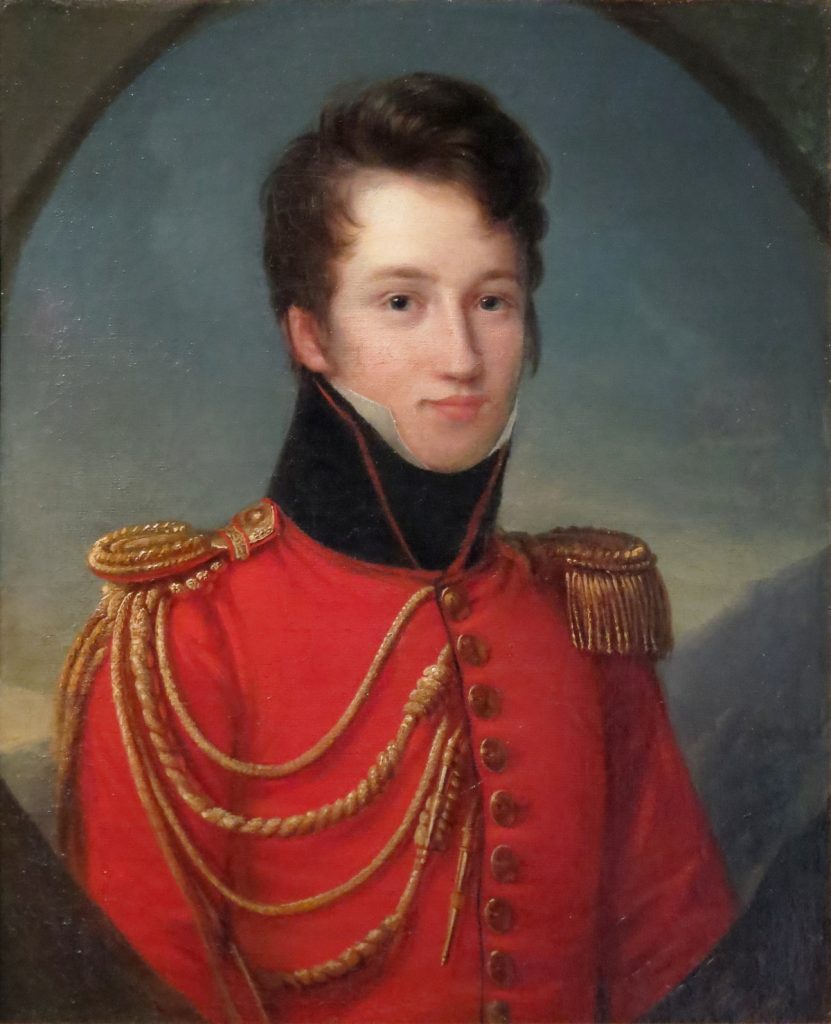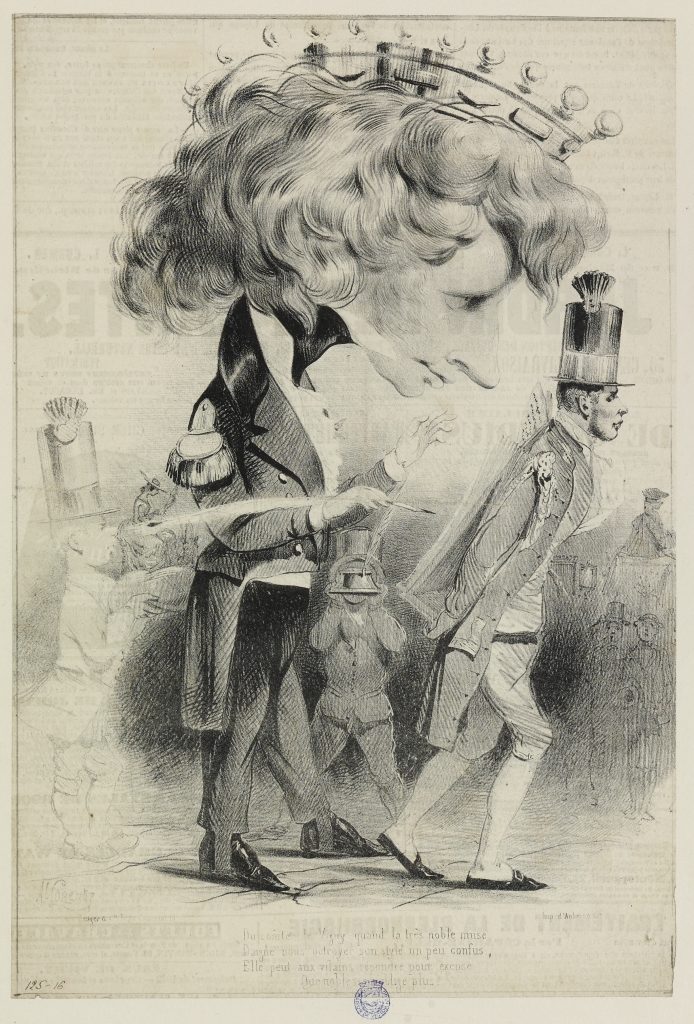

Little interested in the monotonies of his military career, Alfred de Vigny published a first collection of poems, striking for their stripped down, powerful symbolism. Developing a theme of the misunderstood superior being, he gives voice to a pessimist Stoic philosophy. He then wrote several historical novels in which he defended the creative license of the poet, before achieving success with the stage play, Chatterton, in 1835. Largely out of step with his contemporaries, Vigny occupies a singular place within the landscape of Romanticism. While he appears to have been highly influential, he was never terribly popular, and had no immediate successor. The exceptional beauty of certain of his works, however, has ensured the poet lasting renown.
I LOVE through the deep woods, at
To hear the horn sounding the stag at bay,
Or hunter’s farewell note which
How oft have I a midnight vigil kept,
And smiled to hear it, but more often wept!
It seemed the sound prophetic, which of old
Th’ approaching death of Paladins foretold.
O azure mountains, land which I adore,
Rocks of Frazona, summits of Marbore,
Cascades and torrents, urged by weights of snow,
Streams sprung from Pyrenean heights that flow,
Mounts both of frosts and flowers, where seasons meet,
Your brows of ice, of blooming meads your feet–
‘Tis there one ought to sit, and listen there
To the horn’s distant melancholy blare.
The traveller oft, when all around is still,
Loves with its brazen voice the night to fill;
While mingled with the cadence, all around,
Th’ harmonious bleatings of the flocks resound.
The doe attentive does not care to hide,
But hangs unmoved on the rocks’ craggy side;
The cascade joins (dashed from the heights along)
Its ceaseless plaint to the romantic song.
Souls of the warriors, are ye hither borne?
Is it your voice that mingles with the horn?
‘Ronceval’ echoes through the dismal vale!
Can grief great Roland’s spirit still assail?
[…]
Alfred de Vigny, Le Cor, 1825

His long hair and dreamy expression identify him as a poet, however, with his coronet, his attendants and his carriage in the background, Alfred de Vigny is also presented as a pure aristocrat, which was unlikely to endear him to readers of the Charivari, a paper with republican leanings.